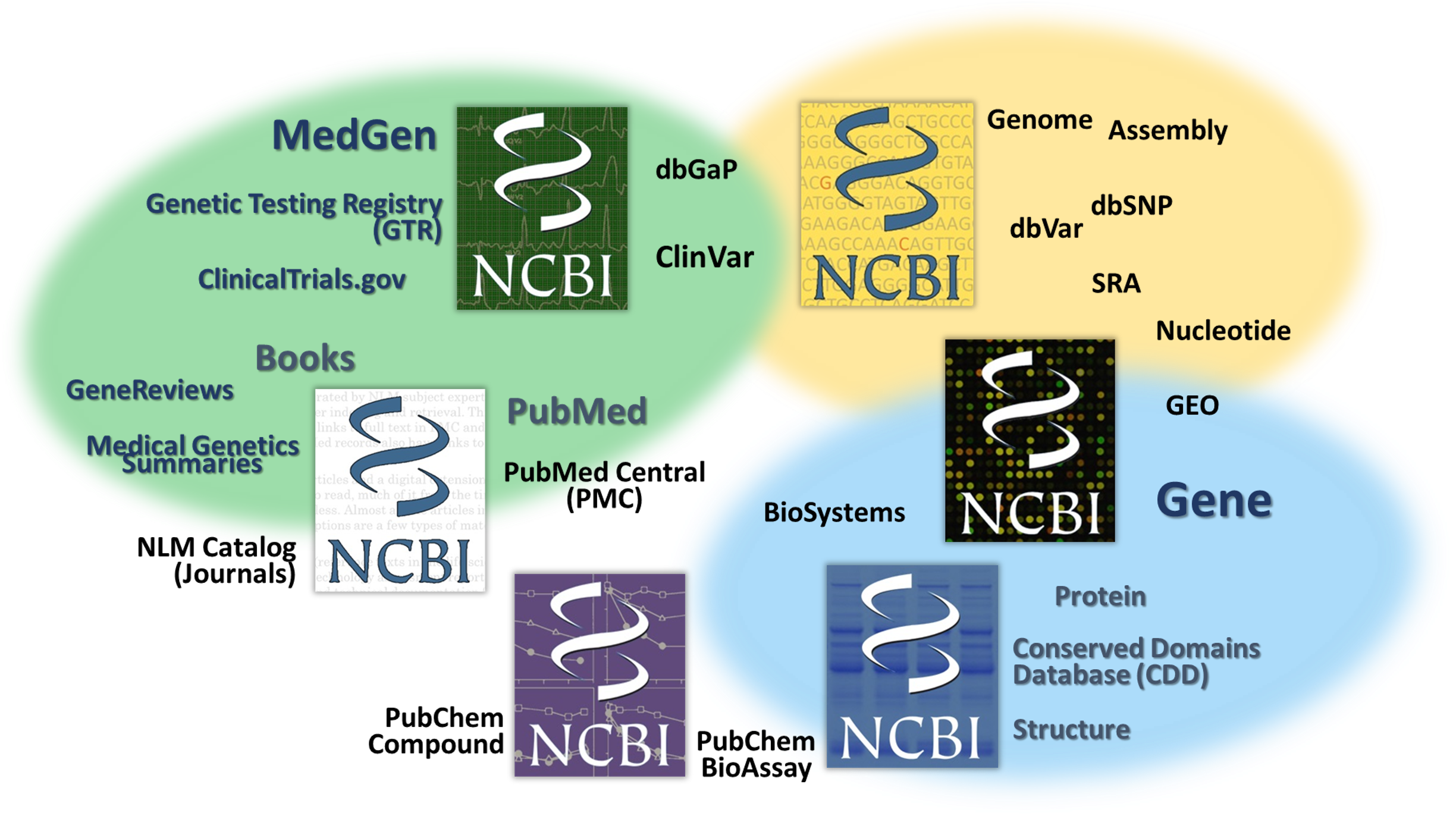Introduction
You are likely here because you are interested in learning more about the impact of a person's genetics.
<some examples, some dubious examples>
Why should we care about a particular person's genomic sequence in the context of biology and human health?
- Discovering the existence of a known variant-of-interest:
- can validate the diagnosis and may further specify a sub-type of the disorder
- may help to explain the exact molecular and physiological mechanism causing the disorder
- may explain observed variability in clinical features or severity of symptoms and speed of disease course.
- may help selecting and optimizing a therapy for a disorder - increasing the likelihood of efficacy while limiting the potential adverse events.
Some NIH-funded projects for exploring human genetics and health
What does this have to do with NCBI?
We are a “center” within the NLM responsible for creation, curation and maintenance of medical and scientific databases and other things…![]()
We receive, create, archive & make available biomedical information, as well as perform computational biology & IT systems research… 
We really aspire to help make sense and promote good use of the information!
Today's workshop
 Using NCBI resources with decades of collected information, we will focus on how to trace the location of a genetic variant from the biological sequence to the molecular level and understand its possible impact on physiology and pathology.
Using NCBI resources with decades of collected information, we will focus on how to trace the location of a genetic variant from the biological sequence to the molecular level and understand its possible impact on physiology and pathology.Based on a real-world case study, you will learn how to:
- Find helpful information about a human disorder starting in the MedGen database
- Learn about an identified genetic variant using ClinVar and dbSNP
- Explore the affected gene and gene product using Gene
- Map the variant onto the gene product’s structure to predict impact on its structure and function
- Use the above information to attempt to understand the patient’s disease etiology
Setting Expectations
What we will cover
-
- NCBI's web-based resources that may be helpful to learn about human genetic disorders/conditions, genetic variations, genes and gene products.
- Examples of how you can use these resources in a patient’s clinical case to understand the underlying molecular pathology.
What we will not cover
-
- We will not cover basic genetics or genetic principles
- although we will use your knowledge about these in our discussions.
- We will not discuss high-throughput analysis of variants
- This is workshop featuring web-based researching, but you may find some helpful resources you can access programmatically or from which you can download datasets.
- We are focusing on human genetic variants, thus will not cover resources to help explain any/all human disorders.
- For example, we will not discuss variants in disease-causing pathogens.
- Today's workshop is about finding helpful information you can use in your research
- We will not discuss best practices for implementation of genetic information in the clinic or production of diagnostic or therapeutic products.
- We will not cover basic genetics or genetic principles
Disclaimer
Last Reviewed: May 22, 2023

